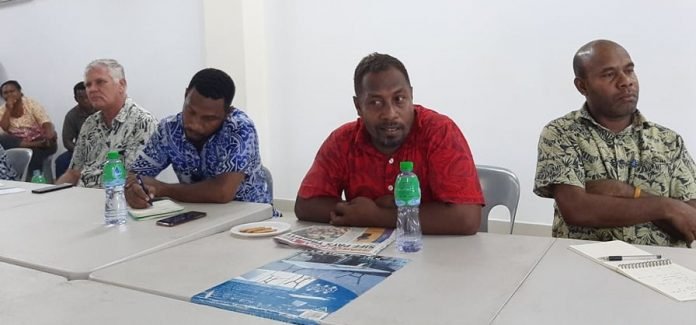
THE Media Association of Solomon Islands (MASI) has just concluded a one-day roundtable discussion on Media regulation in the Solomons.
Supported by the International Federation of Journalists (IFJ) Asia Pacific, the project aims to build the capacity of media associations to assess the systems that regulate the media in the Pacific. The project aims to build understanding on the international standards and identify weaknesses in the existing regulatory environment. By doing this, journalists’ organisations and association like MASI will be able to monitor and campaign on these issues.
The one-day consultations brought together more than 30 journalists by professions both in mainstream media and those working in Public Relations and Communications in both the government, NGOs, CSOs and High Commission offices in Honiara.
Speaking via video call, Kathryn Bice of IFJ Asia Pacific says at the end of the consultations, what the discussions should achieve is what will really work well in the Solomon Islands context.
Ms. Bice says IFJ is using the UNESCO’s Media Development Indicators (MDIs) as the basis for the consultations. These are a set of statements that describe what the media would look like in an ideal world.
The full list of MDIs contains five categories with indicators and sub-indicators. The full set of indicators covers a range of issues, such as: Who owns the media? Do businesses operate on a level playing field? Do journalists get enough training? Can minority groups get access to the media to express their opinions? Do radio, TV and the internet reach the whole population?
“By analysing the media here, and comparing the real situation against the ideal situation, we can identify the gaps. These are the areas that need improvement”, Ms. Bice said.
IFJ with funding support from UNESCO is facilitating the roundtable discussions not only in Solomon Islands but with other Pacific island countries like Vanuatu, Fiji, and Samoa.
“Working together, we can come up with some ideas for change. As unions, we will be better equipped to argue and campaign for improvements”, Ms. Bice said.
This is the first phase of the IFJ project in the pacific. IFJ will also be supporting MASI in the next phase of the project which will be to develop professional journalism and media literacy in the country once the report on the discussions is available.
MASI meanwhile sees this as an opportunity to drive its mission forward which is to provide strong leadership and support members of the media industry, to provide up-to-date quality news and information without fear or favour.
MASI President, Ms. Gina Kekea says the project should set the framework for MASI to address the gaps in the media industry.
“This is only just the beginning and the MASI Board is optimistic that your inputs will certainly guide the work of MASI hereon on a surer platform”, Ms. Kekea said.
Participants to the roundtable discussions not only include journalists but also broadcasters and individuals with a passion for the development of the media industry in the Solomon Islands.